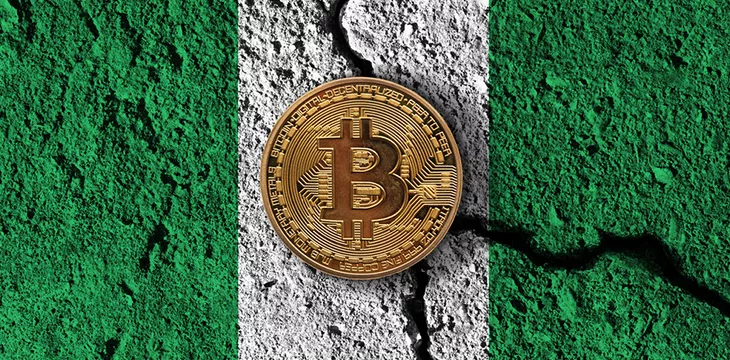A Crypto Power Struggle
In early 2024, the Nigerian government launched a serious crackdown on Binance, the world’s top crypto exchange. It accused the company of hurting the economy, manipulating the naira, and dodging taxes.
The result? Executives were detained. Binance pulled out. The entire African crypto space felt the shock.
This is the story of what happened, why it matters, and where things stand now.
Why Nigeria Blamed Binance

For years, crypto was a safe haven for many Nigerians. With the naira losing value, people turned to digital assets to protect their money.
But the government said Binance’s P2P market let users trade naira at unofficial rates. That, they claimed, drove the currency’s value even lower.
Officials argued the platform encouraged currency speculation. Worse, they said Binance didn’t register or pay taxes despite making huge profits from Nigerian users.
Executives Landed in Jail
In February 2024, two Binance executives traveled to Nigeria to talk with regulators. Instead, they were detained.
- Tigran Gambaryan, a U.S. citizen and ex-U.S. federal agent
- Nadeem Anjarwalla, a British-Kenyan manager
The arrests sparked global concern. Human rights groups, crypto leaders, and governments questioned the legality of holding foreign executives without formal charges.
A Wild Escape
A month later, things took a wild turn. Anjarwalla escaped custody using a second passport. He fled Nigeria and vanished.
His escape made headlines worldwide. Nigerian officials launched an investigation. Meanwhile, Gambaryan remained in custody, awaiting trial.
Legal Trouble Grows
Soon after the arrests, Nigeria filed several legal claims against Binance.
- The tax authority accused Binance of owing $2 billion.
- Another agency filed for $79 billion in economic damages.
The charges included failure to collect VAT, non-payment of company tax, and operating without a local license.
Crypto analysts called the numbers shocking. Some said the government was using Binance as a scapegoat.
Binance Reacts Fast
On March 8, 2024, Binance suspended all naira-related services. This included bank transfers, P2P trades, and fiat withdrawals.
The company said it was cooperating with Nigerian authorities. But many saw the move as a retreat from the country.
Thousands of users were affected. Some couldn’t withdraw funds. Others scrambled to find alternative platforms.
The Bigger Picture
Nigeria’s relationship with crypto has always been complicated. The government banned crypto banking in 2021. Yet, millions of Nigerians kept using it through P2P trades.
Why? Because crypto offered freedom. People used it for remittances, saving, business, and avoiding currency limits.
But for the government, unregulated digital money was a threat. Binance, as the biggest player, became the main target.
The Market Shifts
After Binance halted operations, users quickly moved elsewhere.
- OKX and KuCoin gained new users
- Telegram groups for crypto trading grew
- Stablecoins like USDT stayed popular
Even under pressure, Nigeria’s crypto scene didn’t disappear. It just adapted.
Diplomacy and Global Pressure
With a U.S. citizen detained, the case gained international attention. U.S. lawmakers spoke out. Crypto leaders demanded action.
Human rights groups called for Gambaryan’s release. The U.K. and Kenya also watched closely, especially after Anjarwalla’s escape.
Nigeria faced growing pressure to handle the case fairly and transparently.
Delays in Court
Binance’s court hearings were delayed more than once. Lawyers claimed the company wasn’t properly notified.
The tax case was pushed to April 19, while the economic damages case was delayed until April 30.
Observers say the delays show how unclear Nigeria’s crypto laws really are.
A New Wave of Crypto Regulation?

Nigeria now says it plans to regulate crypto more strictly.
New proposals may include:
- Mandatory registration
- Taxation rules
- Monitoring tools for transactions
- Controls on stablecoins
Some say this is a step in the right direction. Others fear overregulation will kill innovation.
Crypto Is Still Thriving
Despite the crackdown, Nigerians haven’t stopped using crypto. Chainalysis data shows Nigeria remains a global leader in crypto use.
Many now use:
- Offshore wallets
- DeFi platforms
- Direct blockchain tools
They’re avoiding traditional platforms and finding more private ways to trade.
What Comes Next?
The Binance case is far from over. Gambaryan is still in jail. The company is still facing billions in legal claims.
But this case isn’t just about one company. It’s about who controls money in the digital age.
Nigeria wants more oversight. Crypto users want freedom. Somewhere in the middle, a new system might emerge.
Timeline: Binance vs Nigeria
| Date | Key Event |
|---|---|
| Feb 2024 | Binance execs arrested in Abuja |
| Mar 2024 | Anjarwalla escapes custody |
| Mar 8, 2024 | Binance shuts down naira services |
| Mar 2024 | Government files tax and damage claims |
| Apr 19, 2025 | Binance tax case scheduled |
| Apr 30, 2025 | Economic damage trial expected |
Final Thoughts
Nigeria’s fight with Binance is reshaping how crypto operates in Africa.
This case could lead to better rules—or scare off innovation. Either way, it’s a major turning point.
Millions of Nigerians still rely on crypto. The tools may change. The platforms may shift. But the need for financial freedom remains strong.
Disclaimer:
This article is for informational purposes only. It does not offer legal, financial, or investment advice. Readers should conduct their own research or consult a professional before making decisions related to the topic.




